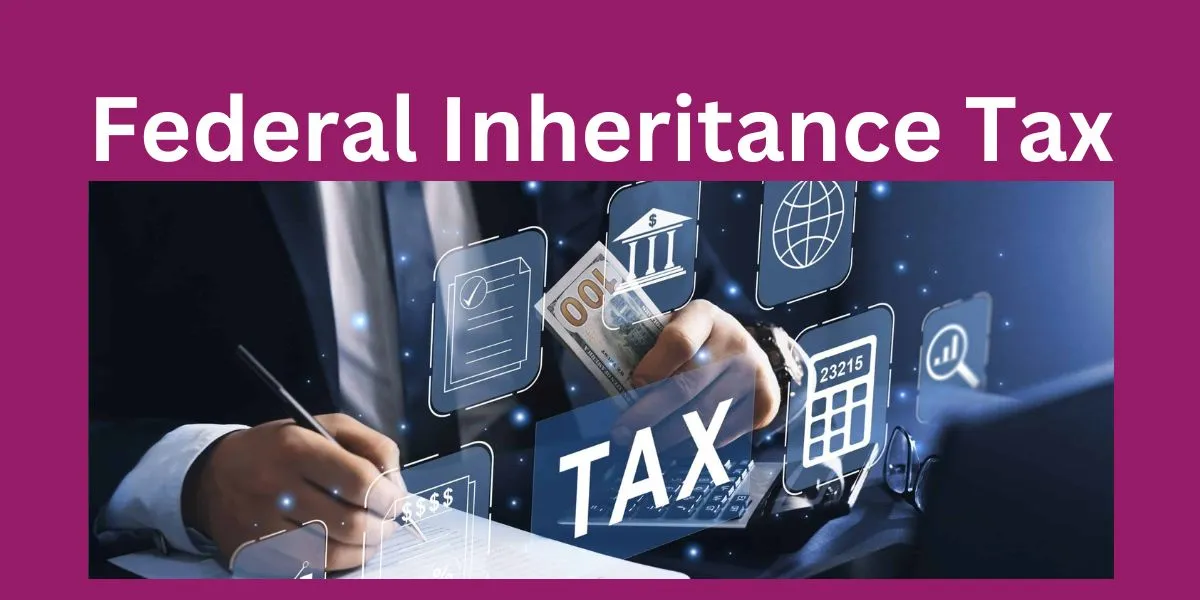Inheritance is a bittersweet part of life. While it can provide financial security, it also comes with questions about taxes and legal obligations. The federal inheritance tax is a topic that sparks curiosity, confusion, and even a bit of dread. If you’re wondering how it works, whether it affects you, and how to navigate it, you’ve come to the right place!
Let’s dive into the nitty-gritty of federal inheritance tax and make sense of what it really means for you and your loved ones.
What Is Federal Inheritance Tax?
The term “inheritance tax” might sound intimidating, but here’s the catch: there isn’t a federal inheritance tax in the United States. Instead, the federal government imposes an estate tax. Confused already? Don’t worry—let’s break it down.
An inheritance tax is paid by the person receiving the inheritance, while an estate tax is paid by the deceased person’s estate before the assets are distributed.
Federal Estate Tax vs. State Inheritance Tax
What’s the Difference?
- Federal Estate Tax: Applies to the overall value of the deceased’s estate before assets are distributed.
- State Inheritance Tax: Applies to the beneficiary’s share of the inheritance and depends on state laws.
States With Inheritance Tax
As of now, only six states levy inheritance taxes:
- Iowa (phasing out by 2025)
- Kentucky
- Maryland
- Nebraska
- New Jersey
- Pennsylvania
If you don’t live in one of these states, you’re off the hook for inheritance taxes.
How Does the Federal Estate Tax Work?
The Tax Threshold
Good news: most estates don’t pay federal estate taxes. Why? Because there’s a high exemption threshold. In 2024, the federal estate tax only applies to estates worth more than $12.92 million for individuals (or $25.84 million for married couples).
Tax Rates
For estates that exceed the exemption, the tax rate ranges from 18% to 40% depending on the value of the estate.
What Assets Are Included in an Estate?
The estate includes everything the deceased owned at the time of death, such as:
- Real estate
- Cash and bank accounts
- Investments (stocks, bonds, mutual funds)
- Business interests
- Life insurance proceeds (in certain cases)
- Personal property (cars, jewelry, art, etc.)
Strategies to Minimize Federal Estate Taxes
Nobody likes paying taxes, especially hefty ones. Here are some strategies to consider:
1. Use the Lifetime Gift Exemption
You can gift up to $12.92 million over your lifetime without incurring taxes. This is a great way to reduce the taxable value of your estate.
2. Annual Gifting
Make use of the annual gift exclusion, which allows you to gift up to $17,000 per recipient per year without it counting toward your lifetime exemption.
3. Set Up a Trust
Trusts, like irrevocable life insurance trusts (ILITs) or charitable remainder trusts, can help shield assets from estate taxes.
4. Donate to Charity
Donations to qualified charities can lower your estate’s taxable value. Plus, you get the satisfaction of supporting a cause you care about!
Filing Federal Estate Taxes
When Is It Required?
If the estate’s value exceeds the exemption threshold, the executor must file IRS Form 706, the United States Estate (and Generation-Skipping Transfer) Tax Return.
Filing Deadline
The estate tax return must be filed within nine months of the date of death, though a six-month extension can be requested.
Special Considerations for Spouses
Here’s a tax perk for married couples: the unlimited marital deduction allows spouses to transfer assets to each other tax-free. Plus, they can combine their estate tax exemptions, effectively doubling it.
Portability of Estate Tax Exemption
“Portability” might sound technical, but it’s straightforward. If one spouse dies and doesn’t use up their exemption, the surviving spouse can “inherit” it, increasing their own exemption. This requires filing an estate tax return after the first spouse’s death, even if no tax is owed.
What About Non-Citizens and Non-Residents?
Estate tax rules can get complicated for non-citizens and non-residents. Generally, they face lower exemption limits and might need to pay estate taxes on U.S.-based assets.
Generation-Skipping Transfer Tax (GSTT)
What Is It?
This tax applies to transfers made to grandchildren (or others who are more than one generation younger than the deceased). It’s meant to prevent skipping a generation to dodge estate taxes.
How Does It Work?
The GSTT is applied on top of the federal estate tax and has the same exemption limit of $12.92 million.
Common Misconceptions About Inheritance and Estate Taxes
1. “Everyone Pays Federal Estate Taxes”
Nope! Only a small percentage of estates exceed the exemption threshold.
2. “My State’s Inheritance Tax Covers Everything”
State inheritance taxes and federal estate taxes are separate. You may face one, both, or neither, depending on your situation.
3. “Life Insurance Proceeds Are Always Tax-Free”
While life insurance payouts are generally tax-free, they may be included in the estate’s value if the deceased owned the policy.
Why Understanding Estate Taxes Matters
Estate planning might not be the most exciting topic, but it’s crucial. Proper planning can save your heirs time, money, and stress. Nobody wants their loved ones to deal with unnecessary tax bills or legal headaches.
How to Get Started With Estate Planning
1. Consult a Professional
Tax laws are complex and vary widely. A financial advisor or estate planning attorney can help tailor a strategy to your needs.
2. Take Inventory of Your Assets
Understanding what you own and its value is the first step to effective estate planning.
3. Communicate With Your Family
Discuss your plans with your loved ones to avoid confusion and potential disputes down the line.
Conclusion: Don’t Let Taxes Be Your Legacy
While the thought of estate or inheritance taxes might seem overwhelming, it’s manageable with the right knowledge and planning. Whether you’re protecting your family’s wealth or just ensuring peace of mind, taking proactive steps today can save everyone a lot of trouble tomorrow.
So, grab a cup of coffee, sit down with a financial advisor, and make a plan—it’s worth it.
FAQs
1. Is there a federal inheritance tax in the U.S.?
No, the U.S. does not have a federal inheritance tax. Instead, it has a federal estate tax.
2. Who has to pay federal estate taxes?
Only estates exceeding the exemption threshold ($12.92 million in 2024) are subject to federal estate taxes.
3. Are life insurance payouts subject to estate tax?
They may be included in the estate’s value if the deceased owned the policy.
4. Can I avoid estate taxes by gifting assets?
Yes, lifetime gifts and annual exclusions can help reduce the taxable value of your estate.
5. Do state inheritance taxes apply everywhere?
No, only six states impose inheritance taxes, and the rules vary by state.










